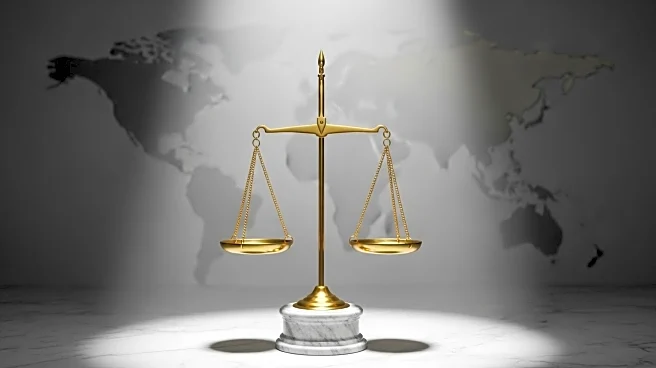What's Happening?
President Donald Trump has signed an executive order allowing the United States to designate nations as state sponsors of wrongful detention. This move aims to deter countries from detaining Americans or using them as hostages by imposing sanctions similar to those for state sponsors of terrorism. The order empowers the State Department to apply penalties such as economic restrictions, visa limitations, and travel bans on countries that fall under this designation. Secretary of State Marco Rubio emphasized that no nation should want to be on this list, highlighting the seriousness of the penalties involved. The order also allows for the designation to be lifted if a nation changes its practices. While specific countries have not yet been named, senior administration officials have indicated that China, Afghanistan, Iran, and Russia could potentially face penalties under this new designation.
Why It's Important?
The executive order represents a significant step in U.S. foreign policy, aiming to protect American citizens abroad and prevent 'hostage diplomacy.' By imposing strict penalties on nations that wrongfully detain Americans, the U.S. government seeks to discourage such practices and ensure the safety of its citizens. This move could impact international relations, particularly with countries that have historically detained Americans. The order also reflects President Trump's focus on bringing home Americans jailed abroad, a priority in his second term. The initiative has already shown results, with the Trump administration securing the release of numerous detained Americans through diplomatic efforts and prisoner swaps.
What's Next?
The implementation of the executive order will likely involve diplomatic negotiations and assessments to determine which countries will be designated as sponsors of wrongful detention. The State Department will need to establish criteria for applying the designation and monitor compliance by affected nations. The order may prompt reactions from countries potentially facing penalties, influencing their diplomatic relations with the United States. Additionally, advocacy groups like Global Reach, which support the return of wrongfully detained Americans, may play a role in monitoring the effectiveness of the order and advocating for further action.
Beyond the Headlines
The executive order could have broader implications for international law and human rights, as it challenges the practice of detaining foreign nationals for political leverage. It may also influence global norms regarding the treatment of detained individuals and the responsibilities of nations to uphold human rights standards. The order could lead to increased scrutiny of countries with poor human rights records and pressure them to improve their practices to avoid penalties.









